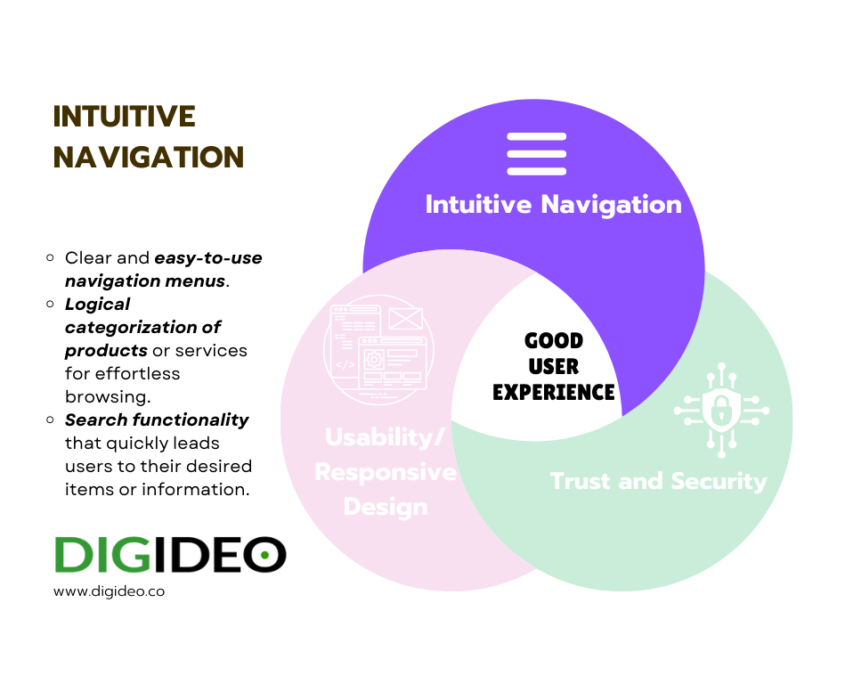Estimated reading time: 4 minutes
What factors contribute to a good user experience in an online shop
-
Intuitive Navigation:
- Clear and easy-to-use navigation menus.
- Logical categorization of products for effortless browsing.
- Search functionality that quickly leads users to desired items.
-
Responsive Design:
- The mobile-friendly layout adapts to different devices.
- Consistent user experience across desktop, mobile, and tablet platforms.
- Fast loading times to prevent user frustration.
-
Informative Product Pages:
- High-quality product images from multiple angles.
- Detailed product descriptions, including specifications and sizing information.
- Clear pricing, availability, and shipping details.
-
Efficient Checkout Process:
- Streamlined and user-friendly checkout flow.
- Multiple payment options for convenience.
- Transparent pricing with no hidden fees.
-
Trust and Security:
- Secure payment gateways to protect customer data.
- Visible trust signals like SSL certificates and secure checkout badges.
- Clear return and refund policies to build trust with customers.
-
Personalization:
- Tailored product recommendations based on user preferences.
- Customized shopping experiences for returning customers.
- Personalized communication through email marketing or account features.
-
Customer Support:
- Accessible customer service options like live chat, email, or phone support.
- Comprehensive FAQs and self-help resources.
- Prompt responses to customer inquiries and issues.
-
Social Proof:
- Customer reviews and ratings for products.
- Testimonials and success stories to build credibility.
- Social media integration for sharing and engagement.
-
Accessibility:
- Compliance with web accessibility standards for users with disabilities.
- Clear and readable text with appropriate color contrast.
- Keyboard navigation and screen reader compatibility.
-
Feedback Mechanisms:
- User feedback surveys to gather insights for improvement.
- Ratings and reviews to encourage customer engagement.
- Continuous monitoring of user behavior through analytics tools.
By focusing on these factors, an online shop can create a positive user experience that enhances customer satisfaction, encourages repeat business, and drives sales and growth.
What factors contribute to a good user experience in a mobile app
-
Intuitive Navigation:
- Clear and easy-to-use navigation within the app.
- Logical placement of menus and buttons for seamless interaction.
-
Responsive Design:
- A mobile-friendly layout that adjusts to different screen sizes.
- Consistent user interface across various devices for a cohesive experience.
-
Performance Optimization:
- Fast loading times to prevent user frustration.
- Smooth transitions and interactions within the app for a seamless user experience.
-
Personalization:
- Tailored content and recommendations based on user preferences.
- Customizable settings to enhance user engagement and satisfaction.
-
Accessibility:
- Inclusive design for users with disabilities.
- Clear and readable text, appropriate color contrast, and accessible features.
-
Security and Privacy:
- Secure login processes and data protection measures.
- Transparent privacy policies and user data handling practices.
-
Feedback and Support:
- Easy access to customer support or help resources.
- Feedback mechanisms for users to report issues or provide suggestions for improvement.
By incorporating these factors into the design and functionality of a mobile app, developers can create a positive user experience that promotes engagement, satisfaction, and loyalty among app users.




Share this entry